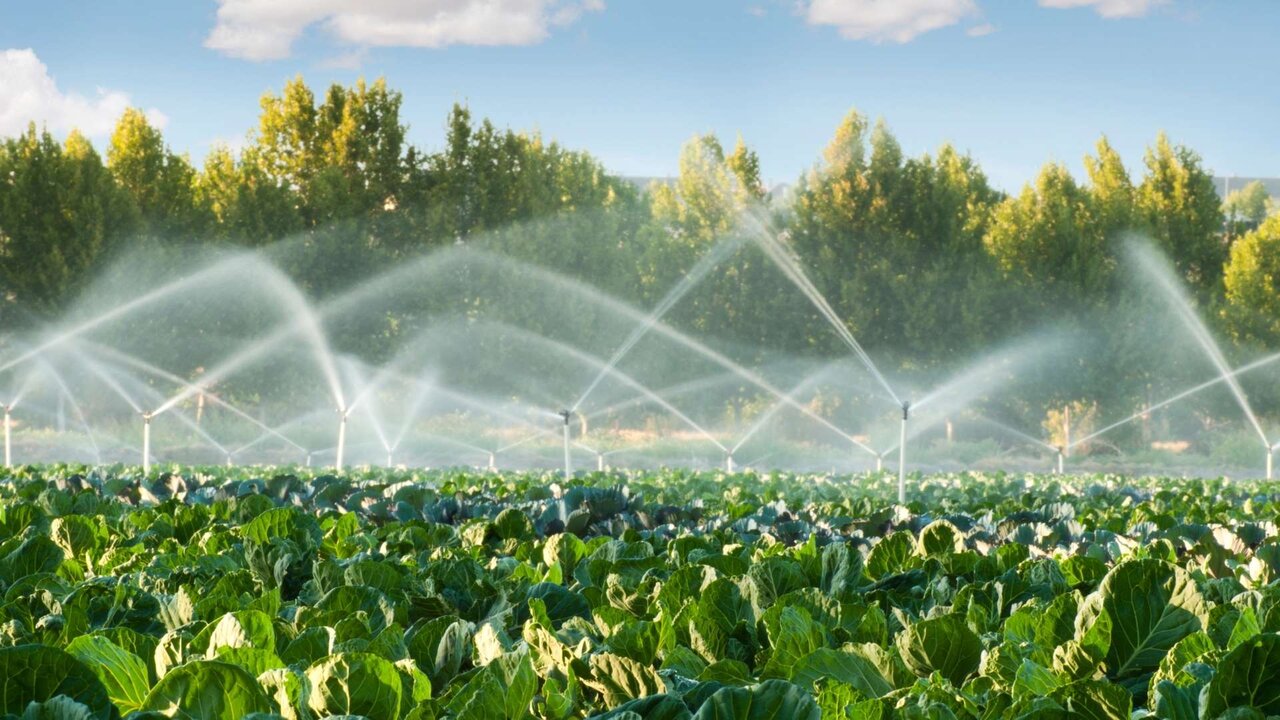Modern irrigation program seriously followed up

TEHRAN- The establishment of modern irrigation systems is one of the comprehensive plans in the field of the agricultural economy which has been the focus of Iranian officials for about three decades to deal with the excessive consumption of water in the agriculture sector of the country.
The implementation of smart irrigation policies in the agriculture sector is a national plan in response to the situation of successive droughts in Iran, which was planned and slowly implemented in the country over the past three decades.
Based on the standards of the Ministry of Agriculture, the implementation of modern irrigation systems projects has caused a reduction in water consumption by 30 to 80 percent, so the ministry is seriously following up the implementation of these projects throughout the country.
According to the project manager of the Agriculture Ministry’s smart irrigation systems development program, the purpose of implementing this plan is to increase the productivity and sustainability of water and soil resources in the country to ensure the sustainable production of agricultural products.
Fariborz Abbasi, who is the head of the Agriculture Ministry’s Water and Soil Department, has said that in smart agriculture human intervention in irrigation management and planning is minimized by using new technologies.
According to the official, the average annual rainfall in Iran is 250 mm and the country's total recoverable water is 112 to 113 billion cubic meters per year, but due to the decrease in rainfall in recent years, this figure has fallen to 100 billion cubic meters.
Emphasizing the approach of the country's planners in the development of modern irrigation methods in water crisis conditions, he said that in general there are about 8.5 million hectares of irrigated lands in Iran, and 30 percent of these lands have been equipped with all kinds of modern irrigation systems.
According to the project manager of the Iranian Agriculture Ministry’s smart irrigation systems development program, various types of modern irrigation systems were established in 51,500 hectares of land in the country during the past Iranian calendar year 1401 (ended on March 20), so far, a total of about 2.6 million hectares of Iran's irrigated agricultural lands have been equipped with modern irrigation systems.
He pointed out the advantages of implementing these systems in terms of water efficiency and said among the advantages of establishing these systems in agricultural lands is a 30-40 percent increase in water efficiency compared to traditional methods, which can also reduce the volume of irrigation water inside the farm in the same amount.
Abbasi also pointed to the increase in crop production in the lands covered by these systems and added: “Our main approach in developing modern irrigation is to establish systems with high efficiency.”
“Also, in the next stage, we plan to develop irrigation machines that have high efficiency and uniformity”, the official added.
The adviser of the agriculture minister further pointed to the supply of equipment and parts for modern irrigation systems and said: "Fortunately, we are close to the border of self-sufficiency in the field of parts and equipment for modern irrigation systems, so that all the parts and equipment needed for these systems are manufactured in the country by domestic manufacturers.”
“We only needed to import a few limited parts of these systems, but fortunately, based on the plans made, some of these parts were manufactured by domestic manufacturers and knowledge-based companies, who are in the process of obtaining relevant certificates and approvals, which, if approved, the import of those parts will be finally prevented”, he added.
Saying that according to the surveys conducted in the country, about 70 percent of the country's recoverable water resources are consumed in the agriculture sector, and the rest is consumed in other sectors, the official concluded that taking this issue into consideration, the vital role of developing the modern irrigation systems in reducing water consumption and increasing water efficiency, especially inside the farm, is an undeniable debate, and with the further development of these systems, it is possible to save more water inside the farms.
